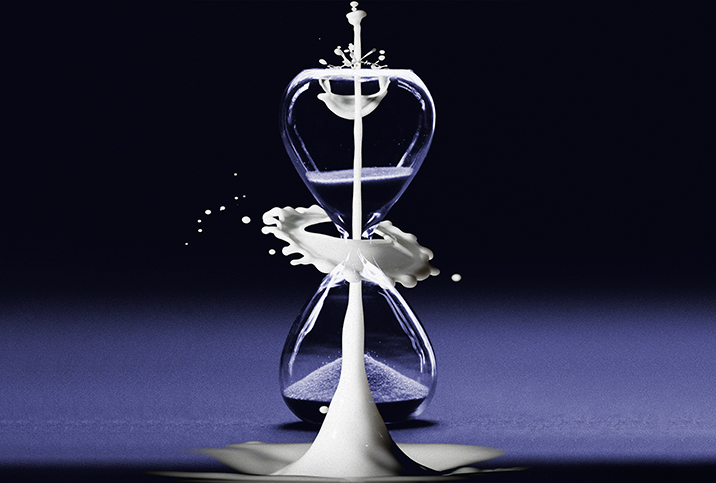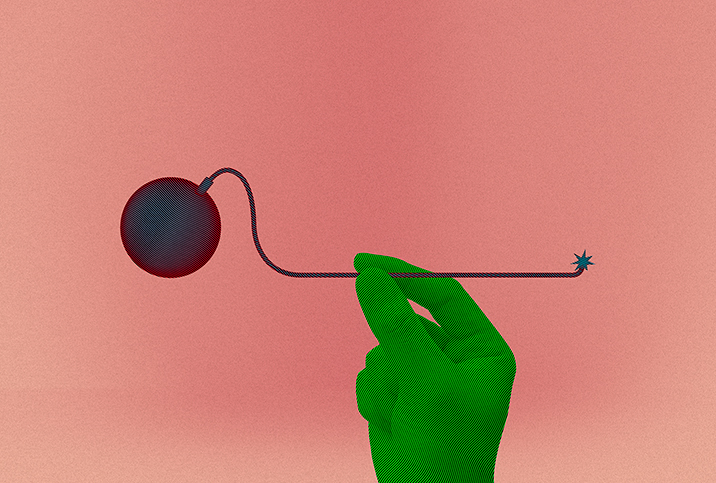Unbalanced Neurotransmitters Could Cause Premature Ejaculation

As many as 40 percent of men experience premature ejaculation (PE) at some point in their lives, according to some estimates.
It's a very common sexual dysfunction with a variety of common—and not so common—causes.
"As you can imagine, PE can be very distressing," said Justin Houman, M.D., a urologist at Tower Urology in Los Angeles.
Mental health issues and prostate problems are among the more common factors in premature ejaculation, but one area sometimes overlooked is the role of hormones.
Balanced hormones equal balanced ejaculation
Specific neurotransmitter hormones control a man's ability to ejaculate and the quality of the experience. Serotonin regulates various cognitive functions, norepinephrine regulates mood and certain biomechanical functions, and dopamine produces positive feelings and sensations.
Among these hormones, serotonin plays a key role in the process. This neurotransmitter transfers signals from one neuron to another, controlling a variety of bodily responses. Men with lower serotonin may experience a disruption in the signal transfer (either biologically or from another cause) that leads to a potentially shorter span for ejaculation.
"You can't really measure [many of these] hormones, but you can measure prolactin," said Marah Hehemann, M.D., a University of Washington assistant professor of urology.
She explained prolactin, a hormone produced by the pituitary gland, has been shown to be an important part of the latency and quality of ejaculation. Further, a measurement of prolactin, along with testosterone, could help signify whether off-kilter transmitters are contributing to PE.
While prolactin and serotonin don't typically interact, a 2017 study published in Psychiatry Investigation suggested that men on selective serotonin reuptake inhibitors (SSRIs) may experience elevated prolactin levels. An excess of prolactin can lead to broader sexual dysfunction and decreased sexual drive, according to a 2003 study.
"If a man's testosterone is too low, we have a thorough discussion on ways to boost it," Houman said. If a man's estrogen or prolactin levels are too high, they talk about how to reduce them.
In short, younger men have more opportunity to regulate these hormones, but as men age, there's less that can be done to reverse the effects of time.
The role of SSRIs
Both urologists noted that SSRIs, typically prescribed as antidepressants, have been shown to extend and delay ejaculation in men with PE. For premature ejaculation, SSRIs are typically prescribed at a sub-therapeutic dose, or just enough to potentially impact those serotonin transmitters. They're not a primary solution, but one with true potential.
"It's a very reasonable treatment, but I typically like a primary care doctor to manage SSRIs," Hehemann said.
Hehemann added the first PE treatment she opts for is behavioral and/or sex therapy to understand if the root cause is related to mental health.
If that path proves inconclusive, she noted there are a number of numbing wipes and lotions available that can physically reduce the sensitivity of the penis and potentially delay ejaculation.
Techniques including the start-stop method, the squeeze method, edging and Kegel exercises may also help control ejaculation.
When age plays a role
"The one thing to remember is that as we age, our time for ejaculation decreases," Houman said. "The natural aging of biology is difficult to adjust."
Hehemann added that delayed ejaculation is almost as common as premature ejaculation, and both involve a complex interplay of hormones and erectile strength. For example, some men may be genetically predisposed to have more penile sensitivity and, thus, a shorter time range for ejaculation compared to other men, while others may have inherent biology for shorter ejaculation times.
In any case, there's only so much that can be done to create a longer buildup to ejaculation, especially as men age.
"There are ways in which we can try to do it, but will you get to where you were at 21? Unlikely," Houman said.


















